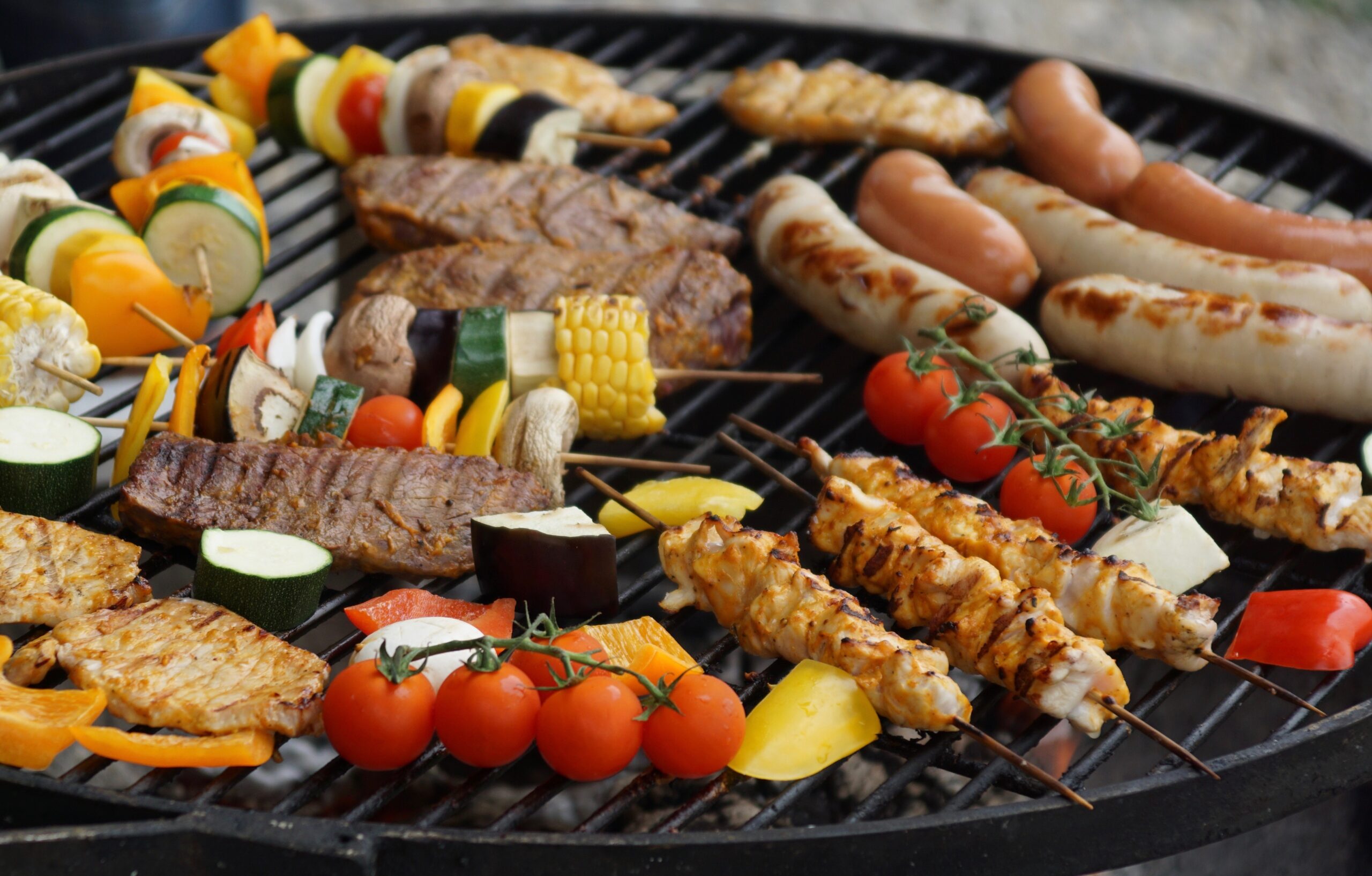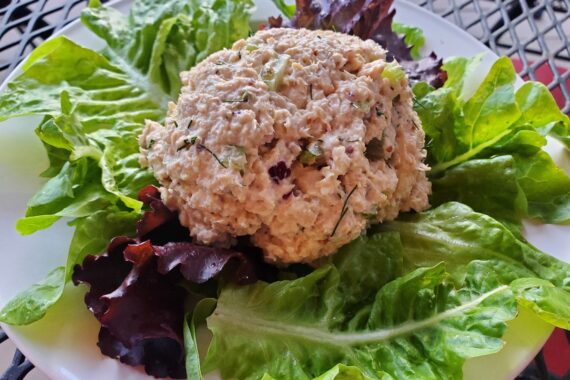
10 Steps to Healthier Grilling
It’s finally summer and thoughts turn to … grilling! Food on the grill is a quintessential part of summer that we all look forward to.
But wait! Maybe you’ve heard the news that grilling meats produces carcinogenic compounds, especially if the meat gets charred. Can our beloved barbequed meats cause cancer?
Indeed, when you cook meat at high temperatures, it creates toxic compounds. The main toxic compounds are heterocyclic amines (HCAs), polycyclic aromatic hydrocarbons (PAHs) and advanced glycation end products (AGES).
When meats are cooked at high temperatures (over 550 degrees F), the fat in the meat drips onto the coals or gas flame, causing flare-ups and the development of these toxic compounds. The same reaction doesn’t happen with fruits and vegetables.
How To Make Grilling Safer
If you only grill meats occasionally, the potential risks of eating charred meats is probably not worth worrying about. But if you grill on a regular basis, here are some tips for lowering your exposure to these toxic compounds.
- Always start with a clean grill grate. Grilling on a grate that has charred debris from your previous meal simply adds carcinogenic compounds to your meal. (Plus…ewwwww.) The best time to clean your grate is right after grilling, when the grate is still hot. A grill brush dipped in hot soapy water quickly cleans debris off the grate.
- Oil the grill grate with an oil that has a higher smoke-point. Avocado oil is a good choice, with a smoke point of 520 degrees F. Coconut oil and grapeseed oil also have higher smoke points.
- Marinate your meat for 30-60 minutes before grilling with a mix of oil, acid (vinegar, lemon juice, wine) and seasonings. This creates a barrier between the fire and the meat that reduces the formation of HCAs by 90%.
- Include herbs and spices in your marinade or in a dish alongside your grilled meats. Garlic, rosemary, sage, oregano, marjoram, thyme, basil, mint and savory are rich in antioxidants that have anti-cancer action.
- Eat plenty of fruits and vegetables with the grilled meat. Their nutrients and antioxidants offset the carcinogenic compounds formed on the grilled meats. Also, grilled vegetables and fruits don’t contain the toxic compounds of grilled meats. They can be put on skewers alongside the meat. Or make a big salad to go with your meal. Making vegetables and fruits a larger part of the overall meal means eating smaller amounts of the grilled meat.
- Be sure to grill a variety of different meats. In addition to steaks and burgers, include pork, poultry, shrimp and fish. These typically require less cooking time at the high heat, which lowers the load of carcinogenic compounds. Along those same lines, eating the meats more rare, while still making sure they’re thoroughly cooked, lessens cooking time and exposure to high heat.
- Flip the meat often and don’t pierce the meat while cooking. This keeps the fats and juices in the meat so that they don’t drip onto the grill and cause a fire flare-up.
- Trim extra fat from the edge of the meat before grilling to avoid it melting and dripping into the fire and causing flare-ups.
- Add BBQ sauce at the very end of cooking. Most BBQ sauces contain a fair amount of sugar, which creates AGES when exposed to heat and flames.
- After cooking the meat, cut off the blackened charred parts before eating. These parts contain more carcinogenic compounds.
By following these 10 steps to healthier grilling, you can still enjoy your grilled foods without worrying about negative health effects.



